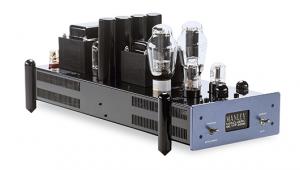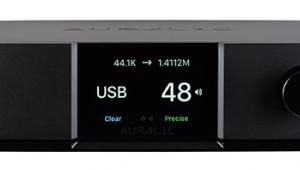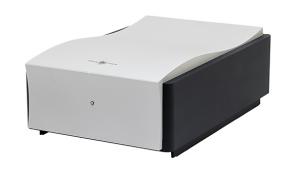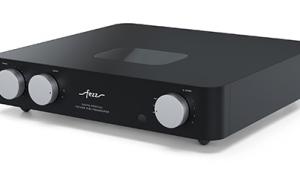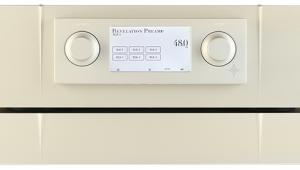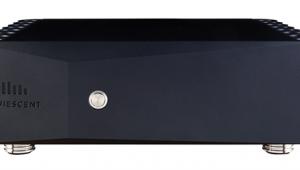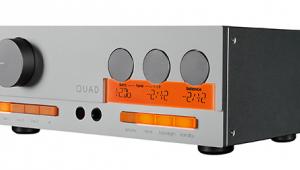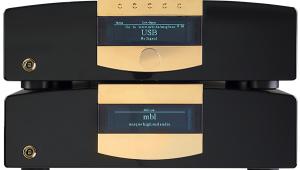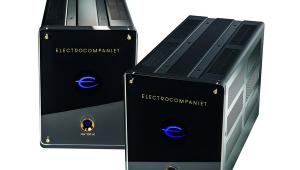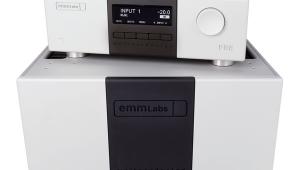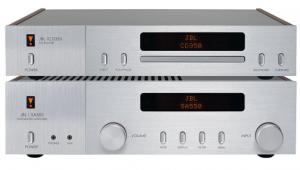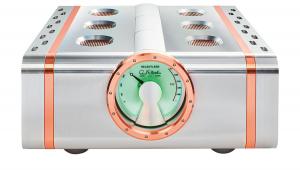D'Agostino Progression Preamplifier/Stereo pre/power amplifier Page 2
![]() Magical Realism
Magical Realism
The Progression Preamp/Stereo joined a pair of Wilson Audio Alexia Series 2 loudspeakers [HFN Mar ’18] for the listening, with a dCS Vivaldi One media player [HFN Feb ’18] and Rossini DAC as digital sources. Transparent Opus cabling was used throughout while a Momentum Preamp and Progression monoblocks were on hand as a memory ‘refresher’.
I began with the Vivaldi One driving the Progression Stereo directly, only to be presented with a flat and rather pedestrian sound. It was only when I installed the Progression Preamp that the magic was revealed. Now the sound was infused with a tube-like bass bloom without any loss of lucidity, the pairing revealing the purpose, drama and sheer vitality of the music. In short, I was flabbergasted.
It was like using the luminosity slider in a photo-editing software package to banish noise that lurks in the shadows of a digital image. Less noise means greater dynamics not to mention a more convincing see-through presentation, the sounds emerging clearly against a pitch-black canvas.
The Progression Stereo drove the Alexia Series 2 effortlessly, and I was greeted with the same tonality, harmonic richness and differentiation of timbres as when I heard the speakers hooked up to the Progression monoblocks. The family resemblance is not just cosmetic. Both amps share the same ‘voicing’ and there’s no apparent lack of power or curtailing of dynamics. The Monos surf the soundwaves on a pair of skis, while the Stereo uses a snowboard, but they are both very ‘fast’.
Emotional Feast
To feel the pulse of the system I played the tracks I had used to test both the Progression Monos and Alexia S2 in these pages, and only then introduced new music, starting with London Grammar’s electronic pop debut album If You Wait [UM 0602537613120].
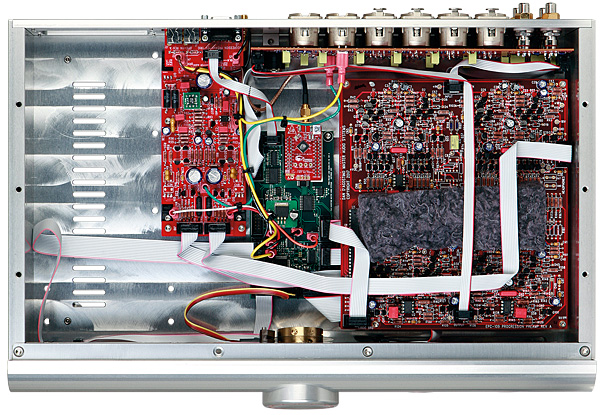
Both the title song and the opening track ‘Hey Now’ are heavy on digital reverb, conveying a feeling of ethereal spaciousness with weeping electric guitars, languorous keyboards and vicious bass lines. Hannah Reid’s voice is both powerful and filled with emotional urgency. The Progression combo feasted on this atmospheric ride, taking advantage of the time cues laid bare by the Alexia Series 2 and delivering all the air that the music needed to breathe.
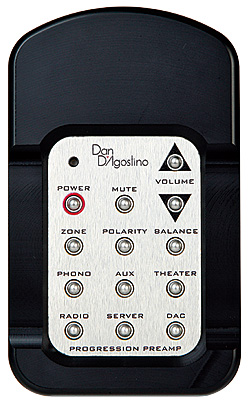 The Progression duo pulled the same neat trick with natural reverb. Kim André Arnesen’s Magnificat [2L-106-SABD] was recorded in Nidaros Cathedral, Norway, by Nidaros Girl’s Choir, with soprano Lise Granden Berg. The sound was captured in 3D by a vast omnidirectional tree-array of microphones hanging some three metres above and in front of the strings and choir. I used the DXD stereo master (352.8kHz/24-bit) download.
The Progression duo pulled the same neat trick with natural reverb. Kim André Arnesen’s Magnificat [2L-106-SABD] was recorded in Nidaros Cathedral, Norway, by Nidaros Girl’s Choir, with soprano Lise Granden Berg. The sound was captured in 3D by a vast omnidirectional tree-array of microphones hanging some three metres above and in front of the strings and choir. I used the DXD stereo master (352.8kHz/24-bit) download.
The Progression Preamp/Stereo managed to convey not only the supreme beauty of the girls’ voices echoing and decaying naturally in the gothic cathedral but also the soprano’s moving spirituality, shining through the Alexia S2 with such religious emotion it could convert the devil himself. I certainly became a believer – if only in the Progression Preamp/Stereo amps.
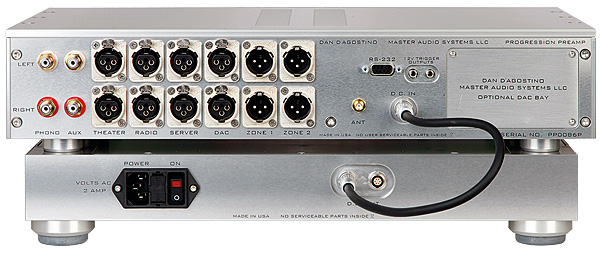
Dark Stars
Back to Earth – and sin – and next up was ‘You Want It Darker’ from Leonard Cohen’s poignant final album of the same name [Columbia 0889853650729]. The Progressions delivered all the contrast between Cohen’s half-spoken, whispered grumble and the humming male choir and backing female vocals, while the dark, subterranean beat drove the song with a funereal pace towards its inexorable end: ‘I’m ready, my Lord’.
But I was not ready yet. I just needed something more uplifting. My hand reached for Keb Mo’s Peace, Back By Popular Demand [Sony 0886977026027]. I had been lucky enough to hear Keb Mo live in a private concert in New York, back in 2002. The kick drum sounded just as tight, the bass as articulate and Mo’s low-key vocals as present as I can remember, making the Stephen Stills’ song ‘For What It’s Worth’ almost danceable with its soul-jazz and funky adornments.
‘Wake Up Everybody’, the track that follows, is a peaceful call to arms: ‘All we have to do is put our heads and hearts together’. And the Progressions did put everything together. Bass and kick drum were as much rhythmically intertwined as they were differentiated in timbre. Meanwhile, the backup vocals and funky horns drew a tapestry against which Mo’s voice and percussionist’s strikes stood out clearly amid the colourful embroideries of guitars and keyboards.
Hi-Fi News Verdict
While it’s true that I began with a bias for the Momentum Preamp/Progression Mono combination, the Progression Preamp/Stereo duo, offering half the power for half the money, also gave me ‘the whole of the moon’. If I had to choose, I wouldn’t hesitate a moment(um). While clearly still expensive for many, this combo represents a true bargain and in my book the performance is more than enough to warrant the price.



